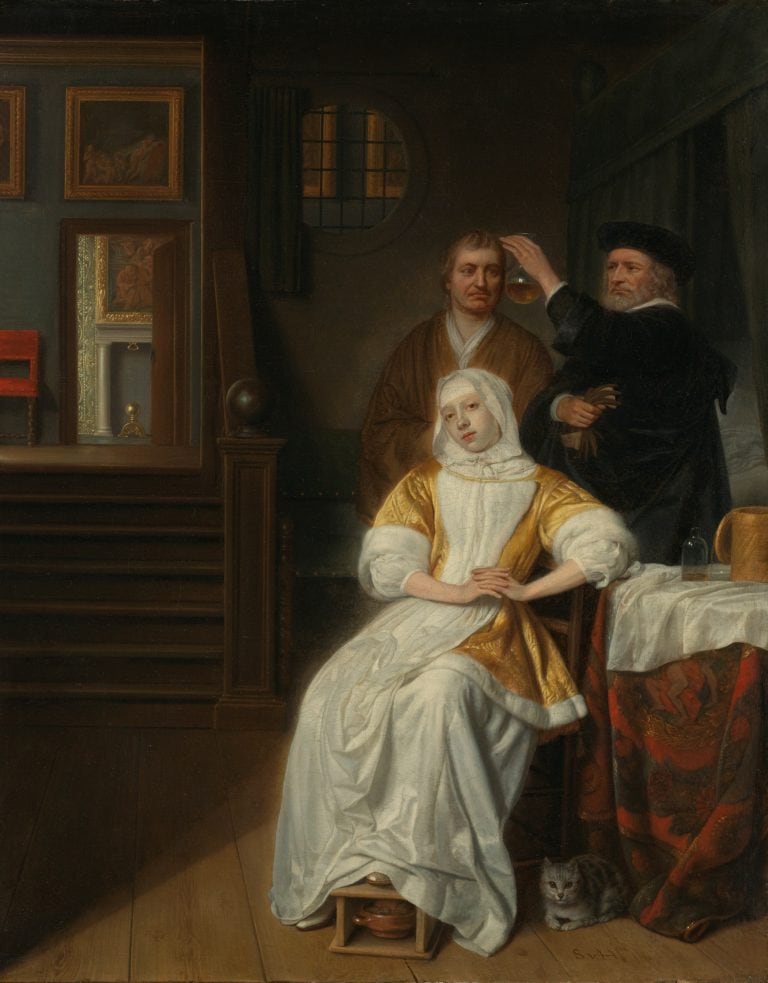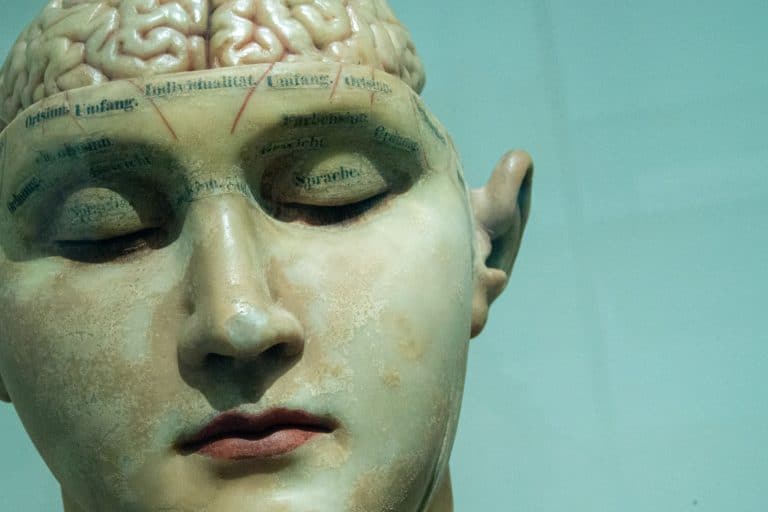Exploring OCD: 13 Fascinating Facts You Didn’t Know

Ever wondered what’s behind the scenes of obsessive-compulsive disorder (OCD)? It’s more than just a habit or a quirk – OCD is a real challenge for many people.
Let’s break it down and discover 13 interesting facts about OCD. From its deep-rooted history to what science tells us today, this article aims to make sense of the ins and outs of OCD.
By the end, we hope you’ll have a better understanding of this often-misunderstood part of the human experience. So, buckle up as we take a simple, no-nonsense dive into the world of OCD!
Let’s delve into each of the most interesting facts about OCD and provide more detail on each point.
1. Early Onset
OCD often manifests in childhood or adolescence, with a significant portion of individuals experiencing symptoms before the age of 18.
Early-onset OCD can be particularly challenging as it may interfere with normal developmental milestones and daily activities.
2. Neurological Basis
Research suggests that Obsessive Compulsive Disorder is associated with abnormalities in the brain’s circuitry, particularly in areas related to decision-making, emotion regulation, and habitual behavior.
Imbalances in neurotransmitters, such as serotonin, play a crucial role in the development and perpetuation of OCD symptoms.
3. Not Just About Cleanliness
While cleanliness and hygiene obsessions (e.g., excessive hand washing) are commonly associated with OCD, the disorder encompasses a broad range of obsessions and compulsions.
Intrusive thoughts, fears of harm coming to oneself or others, and the need for symmetry or exactness are just a few examples of diverse OCD manifestations.
4. Chronic Nature
Obsessive Compulsive Disorder tends to be a chronic condition, with symptoms waxing and waning over time.
People with OCD often experience periods of relative symptom relief, followed by periods of increased stress or life changes triggering a resurgence of symptom or even begin developing ocd.
5. High Co-occurrence with Other Disorders
OCD frequently coexists with other mental health conditions, such as anxiety disorders, body dysmorphic disorder, depression, and attention-deficit/hyperactivity disorder (ADHD).
The presence of multiple disorders can complicate diagnosis and treatment strategies for OCD sufferers.
6. Impact on Daily Life
Obsessive Compulsive Disorder can significantly impact daily functioning (normal life), leading to difficulties in maintaining relationships, pursuing education or employment, and engaging in leisure activities.
Individuals with severe OCD may find it challenging to leave their homes or participate in social activities due to the distressing nature of their obsessions.
7. Cognitive-Behavioral Therapy (CBT) as a Primary Treatment
CBT, particularly exposure and response prevention (ERP), is considered the gold standard in the psychological treatment of OCD & other mental disorders.
ERP involves gradually facing feared situations or thoughts without engaging in the corresponding compulsions, helping individuals build tolerance to anxiety caused and repetitive behaviors.
It is recommended to work with a trained mental health professional when it comes to ERP.
8. Medication Options
Selective serotonin reuptake inhibitors (SSRIs) are commonly prescribed medications for OCD.
These medications work by increasing serotonin levels in the brain, helping to alleviate obsessive thoughts, OCD compulsions and reduce the urge to perform compulsive behaviors.
9. Not Just a Personal Quirk
Contrary to popular belief, OCD is not a personality trait or a mere quirk but a clinically recognized mental health disorder.
Understanding OCD as a legitimate medical condition reduces stigma and encourages people with OCD to seek appropriate help.
10. Genetic Factors
There is evidence to suggest a genetic component in the development of OCD, with a higher likelihood of the disorder occurring in individuals with a family history of OCD or related anxiety disorders.
11. Role of Stress
Stressful life events can trigger (develop OCD) or exacerbate OCD symptoms such as compulsive symptoms and mental acts.
Understanding and managing stress is an integral part of coping with OCD, and stress reduction techniques can be beneficial in OCD treatment.
12. OCD Across Cultures
OCD is found across diverse cultures and ethnicities, dispelling the notion that it is limited to specific populations.
However, cultural factors may influence the content of obsessions and compulsions and other anxiety disorder(s).
13. Advancements in Research
Ongoing research is uncovering new insights into the neurobiology of OCD and potential targeted treatments.
The evolving understanding of OCD continues to shape more effective therapeutic interventions and appropriate treatment.
By exploring these facets of OCD, we gain a more comprehensive understanding of the disorder, fostering empathy and awareness in the broader community.
Understanding and being familiar with obsessive-compulsive disorder (OCD) holds profound significance in fostering empathy, challenging misconceptions, and promoting mental health awareness.
Here’s an expanded look at why it’s crucial to be acquainted with OCD:
Why it’s Important to be Familiar with OCD

Reducing Stigma
Familiarity with OCD helps break down the stigma surrounding mental health conditions.
Misconceptions and stereotypes often contribute to the marginalization of individuals with OCD, hindering their ability to seek help or share their experiences openly.
Promoting Early Intervention
Increased awareness facilitates early recognition of OCD symptoms.
Early intervention is vital for effective treatment and management, as it can prevent the exacerbation of symptoms and the potential development of comorbid conditions.
Supporting Individuals and Families
Knowing about OCD enables friends, family members, and communities to provide better support.
Recognizing the challenges faced by individuals with OCD allows for a more compassionate and understanding environment, reducing feelings of isolation.
Improving Accessibility to Treatment
Awareness plays a pivotal role in improving access to mental health resources.
When communities are knowledgeable about OCD, it often leads to increased advocacy for mental health services and policies that support those affected by the disorder.
Educating the General Public
Educating the general public about OCD contributes to a more informed and empathetic society.
By dispelling myths and providing accurate information, the public can contribute to creating an inclusive atmosphere for individuals with OCD.
Enhancing Self-Awareness
Increased awareness of OCD encourages self-reflection and self-awareness.
Individuals experiencing symptoms may be more likely to recognize their struggles, acknowledge the need for support, and seek professional help.
Encouraging Open Dialogue
Open discussions about OCD help normalize conversations around mental health.
Encouraging dialogue creates an environment where individuals feel comfortable sharing their experiences, reducing the fear of judgment and fostering a sense of community.
Preventing Misdiagnosis
Awareness aids in preventing misdiagnosis and the misunderstanding of OCD symptoms.
Recognizing the nuanced nature of the disorder ensures that people with OCD receive appropriate and effective interventions, reducing the risk of prolonged suffering.
Challenging Stereotypes
Being familiar with OCD challenges stereotypes that may depict individuals with the disorder as merely “neat freaks” or “perfectionists.”
Understanding the diversity of OCD symptoms promotes a more accurate and nuanced portrayal.
Empowering Advocacy Efforts
A well-informed community is more likely to engage in advocacy efforts.
By supporting organizations (International OCD Foundation), initiatives, and policies that prioritize mental health, people with OCD can contribute to a broader movement aimed at destigmatizing OCD and other mental health conditions.
In essence, being familiar with OCD is not just about acknowledging the existence of a mental health disorder; it’s about fostering a culture of understanding, empathy, and support for treating OCD.
By doing so, we collectively contribute to a world where mental health is prioritized, and individuals with OCD can lead fulfilling lives free from unnecessary stigma and obstacles.
Conclusion
In short, exploring OCD shows us the ups and downs people face with this condition. These 13 facts offer a glimpse into its history and today’s insights, giving us a better understanding. By being aware and compassionate, we can support those dealing with OCD on their path to managing and overcoming it.



